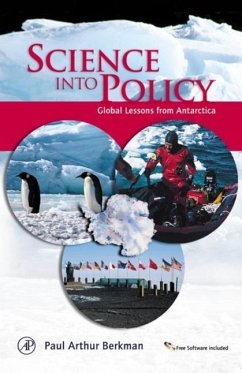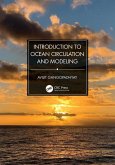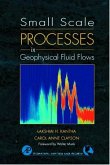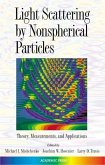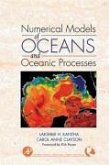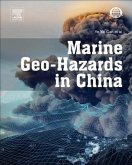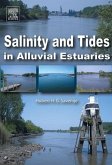Science into Policy: Global Lessons from Antarctica reveals a unique model for integrating Earth system science with environmental and resource policies to balance economic, governmental, and societal interests. Since the International Geophysical Year in 1957-1958, scientific investigation has fostered international cooperation and the rational use of Antarctica for peaceful purposes only. Beyond merely presenting information, this book integrates content and concepts in a manner that will appeal to individuals with interests in the natural and the social sciences.
Hinweis: Dieser Artikel kann nur an eine deutsche Lieferadresse ausgeliefert werden.
Hinweis: Dieser Artikel kann nur an eine deutsche Lieferadresse ausgeliefert werden.
"The message is clear, and there are very many examples in this book which support it. The reader learns a lot about links between scientific disciplines and the advantages of scientific cooperation...I recommend the book because of its clear message, which merits support especially by those who are educating young people." --Arch. Fish. Mar. Res. (2004)
"...interdisciplinary integration of Antarctic history, science, economics and policy in the context of the Earth System and humankind...." -POLAR TIMES
"Patterned after a senior-level course on Antarctica taught at Ohio State University, this book addresses all aspects of scientific research in this frozen land and also captures the unique international policy framework of conducting research there." -GEOTIMES
"Antarctica is a prominent example of the potential of global cooperation. Since the signing of the 1959 Antarctic Treaty, over 40 countries have studied the continent's climate and environment in an amicable partnership. The book integrates an examination of this governmental union with an extensive discussion of earth system science and Antarctica's role in the preservation of global resources. The marriage of policy and science in Antarctica is emphasized as a prime example of the interational collaboration necessary to sustain life on earth." --BULLETIN OF AMERICAN METEOROLOGICAL SOCIETY
"Berkman (Ohio State Univ.) undertakes the integration of Earth system science with environmental and resource policies on an international scale. In 12 chapters (arranged in five parts), he covers a wide range of topics: a global introduction; the history of international policies in Antarctica; Earth system science, emphasizing the importance of Antarctica in a global context; conservation and sustainable use; and the connection of science and policy in Antarctica as a precedent for environmental concerns elsewhere in the world. The volume is based on the author's long experience with these concerns, in both the classroom and the field. This is an ambitious undertaking that is successfully achieved in a relatively slim volume that is easily read. It is generally well written, with few errors of any importance, and is attractively produced. Figures and illustrations are simple and clear, and its supporting material is strong; the latter includes a comprehensive set of references and Web resources for each chapter; a comprehensive index; and a searchable database on the Antarctic Treaty on compact disc for Windows-based systems. General readers; upper-division undergraduates and graduate students." -CHOICE
"...Informative and accessible accounts of geological processes, the Earth's climate system, the hydrological cycle, and biological processes at the planetary level along with well-informed accounts of the models underlying major lines of thinking about conservation, sustainable resource use, and environmental protection... Paul Berkman is one of a small band of scientists who take seriously the challenge that Earth system science offers to scientific business as usual, and he largely succeeds in his goal of using examples from Antarctica throughout "to illustrate the events, entities, and phenomena influencing our Earth system across time and space" (pg. 18). This is no mean feat. Those willing to devote their scientific careers to the effort to meet this challenge deserve our strongest support." -POLAR RECORD
"...interdisciplinary integration of Antarctic history, science, economics and policy in the context of the Earth System and humankind...." -POLAR TIMES
"Patterned after a senior-level course on Antarctica taught at Ohio State University, this book addresses all aspects of scientific research in this frozen land and also captures the unique international policy framework of conducting research there." -GEOTIMES
"Antarctica is a prominent example of the potential of global cooperation. Since the signing of the 1959 Antarctic Treaty, over 40 countries have studied the continent's climate and environment in an amicable partnership. The book integrates an examination of this governmental union with an extensive discussion of earth system science and Antarctica's role in the preservation of global resources. The marriage of policy and science in Antarctica is emphasized as a prime example of the interational collaboration necessary to sustain life on earth." --BULLETIN OF AMERICAN METEOROLOGICAL SOCIETY
"Berkman (Ohio State Univ.) undertakes the integration of Earth system science with environmental and resource policies on an international scale. In 12 chapters (arranged in five parts), he covers a wide range of topics: a global introduction; the history of international policies in Antarctica; Earth system science, emphasizing the importance of Antarctica in a global context; conservation and sustainable use; and the connection of science and policy in Antarctica as a precedent for environmental concerns elsewhere in the world. The volume is based on the author's long experience with these concerns, in both the classroom and the field. This is an ambitious undertaking that is successfully achieved in a relatively slim volume that is easily read. It is generally well written, with few errors of any importance, and is attractively produced. Figures and illustrations are simple and clear, and its supporting material is strong; the latter includes a comprehensive set of references and Web resources for each chapter; a comprehensive index; and a searchable database on the Antarctic Treaty on compact disc for Windows-based systems. General readers; upper-division undergraduates and graduate students." -CHOICE
"...Informative and accessible accounts of geological processes, the Earth's climate system, the hydrological cycle, and biological processes at the planetary level along with well-informed accounts of the models underlying major lines of thinking about conservation, sustainable resource use, and environmental protection... Paul Berkman is one of a small band of scientists who take seriously the challenge that Earth system science offers to scientific business as usual, and he largely succeeds in his goal of using examples from Antarctica throughout "to illustrate the events, entities, and phenomena influencing our Earth system across time and space" (pg. 18). This is no mean feat. Those willing to devote their scientific careers to the effort to meet this challenge deserve our strongest support." -POLAR RECORD

